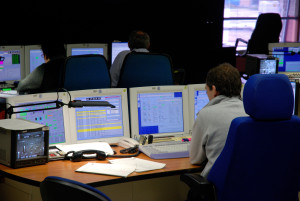With all the changes to the structure of our first responder system, have you ever heard of Terrorism Liaison Officers (TLO’s)? What do they do? How many are there? What training do they receive? What are the standards for psychological testing of TLO’s? Terrorism Liaison Officers will make up some of our best and brightest, but this is also a group of human beings. In the event that something goes wrong, what whistleblower protections, support and training do they receive if one or more spot wrongdoing? What does oversight for the program look like and how regularly is it audited? How does a member of the public find out if his or her information has been compromised improperly?
The Northern CA Regional Intelligence Center administers a Terrorism Liaison Officer Program, which includes training for: “Active Peace Officers, Firefighters, State Investigators, Federal Agents, Military Investigative personnel, or other government employees (working within the public safety /homeland security community) employed within the NCRIC’s Area of Responsibility (AOR)” (https://ncric.org/default.aspx?menuitemid=629).
According to the CA Office of the State Fire Marshall, “TLOs serve as the conduit through which homeland security and crime-related information flows from the field for assessment and analysis. The network also serves as the vehicle to carry actionable intelligence from the Fusion Center to field personnel. This information flow provides for increased safety and security for fire department personnel as well as the communities served” (http://osfm.fire.ca.gov/training/terrorismliaisonofficer.php).
How does the process work?
“TLOs are typically contacted when suspicious activities are witnessed that could potentially be related to terrorism. They in turn forward the lead or Suspicious Activity Report (SAR) to their local police, Fusion Center, or the Joint Terrorism Task Force (JTTF)….” (http://www.tlo.org/what_is_tlo.html).
“Duties and responsibilities of the TLO may include…The collecting, reporting, retrieving, and sharing of materials related to terrorism…The contact for communicating with community stakeholders in matters related to terrorism. The contact person for community and private sector relationships. The person who conducts, coordinates, and/or facilitates departmental training with regard to terrorism and terrorist related subjects. The designated agency representative to the JTTF, Terrorism Early Warning Group (TEW), or Fusion Center” (http://www.tlo.org/what_is_tlo.html).
Democracy relies on informed and participatory citizens. Since the TLO program includes representatives from a wide-spanning network of state and federal agencies, it has tremendous impacts on the quality of American lives. Public safety officials note “the extraordinary potential for the TLO Program to be a force-multiplier in countering the threat of terrorism” (http://www.tlo.org/what_is_tlo.html). Through public records requests, IGGI is assessing the scale of public sector participation, privileges and duties of TLO’s, psychological testing to qualify for the program, if any, and any review and auditing procedures central to this program. With public trust, resources and power entrusted to officials, the goal of this analysis will be to weigh the risks and responsibilities of the TLO program for critical analysis, education and research.

